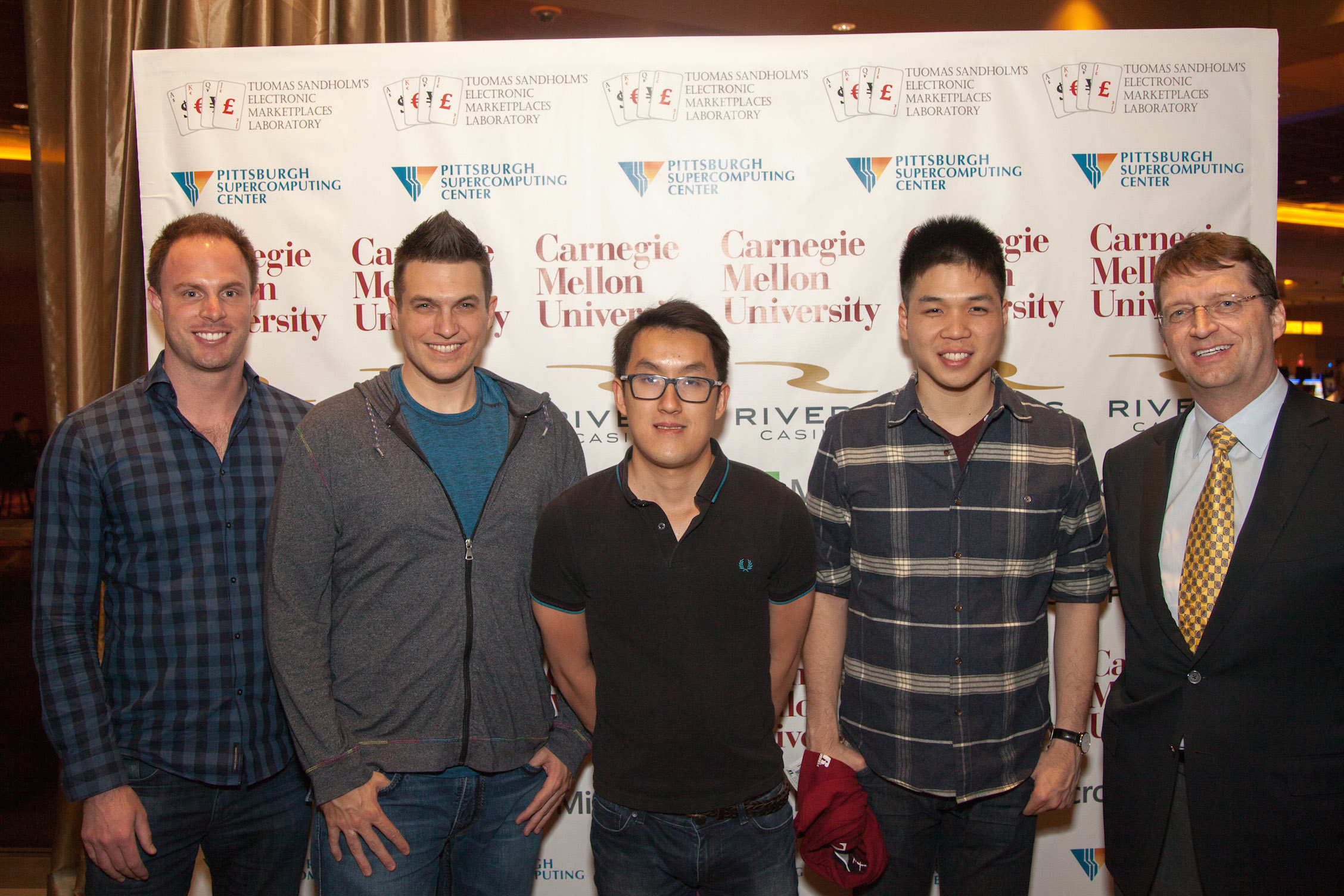Poker Pros Lead at Halfway Point of "Brains Vs. Artificial Intelligence" 40,000 Hands of No-Limit, Texas Hold'Em Remain To Be Played
Ken Walters (Carnegie Mellon) and Emily Watts (Rivers Casino)Friday, May 1, 2015Print this page.

Today marks the halfway point of an 80,000-hand journey in the "Brains Vs. Artificial Intelligence" poker competition. After 40,000 hands, the humans — four professional poker players — have taken a lead over Carnegie Mellon University's artificial intelligence program, Claudico.
Hosted at Rivers Casino, this first-ever challenge began on Friday, April 24. The pros — Doug Polk, Dong Kim, Bjorn Li and Jason Les — were confident that they would crush Claudico over the course of two weeks. Though the pros have prevailed overall, Claudico has won some days and maintains a lead over one player.
"Claudico performs real-time reasoning while playing a hand and improves its strategy during the match by continuously computing," said Tuomas Sandholm, a professor of computer science at Carnegie Mellon who has led development of Claudico. "I know many people are rooting for the humans, but I'm still hopeful that Claudico will give them a run for their money."
"This is quite possibly the highest-quality poker ever seen," Sandholm continued. "Furthermore, both Claudico and the humans are improving their game throughout the event. Both sides are already playing stronger than they were at the start. I have been extremely impressed by the pros' ability to improve and adjust their game no matter what curve balls Claudico has thrown at them."
Fans can watch the pros live every day from 11 a.m. to 10 p.m. in the Levels Lounge at Rivers Casino, or tune in to the live stream on Twitch. Play will continue in two sessions of 750 to 800 hands per day, with one day set aside on Sunday, May 3, so the human players can rest. The winner and final standings of the competition will be announced on Friday, May 8.
"I give the pros a lot of credit for their stamina and good humor throughout the competition," said Rivers Casino General Manager Craig Clark. "Doug, Dong, Bjorn and Jason have been having fun along the way, and whether you're watching it on property or online, they're answering questions and making sure viewers are engaged."
The competition was designed to ensure that the outcome is scientifically significant and not a result of luck. In addition to the large number of hands, the players are paired to play duplicate matches — Player A will receive the same cards as the computer receives against Player B, and vice versa. One of the human players is in isolation, to prevent any comparison of the cards. The same arrangement applies to Players C and D.
"Playing Claudico has been unlike any other game I've ever played," Polk said. "I've been taking notes along the way when it makes a move that I wasn't expecting so that I can continue to improve my strategy and make sure I walk away with a win."
The competition continues Carnegie Mellon's pioneering research in artificial intelligence, which began with the creation of the first AI program, Logic Theorist, in 1956. The top-ranked School of Computer Science includes the world's first Machine Learning Department and some of the world's leading scientists in computational game theory, market design, natural language processing, computer vision, speech translation, thought identification and collaboration among intelligent agents. Read more about the competition here.
To see the leaderboard and the latest scores, as well as the live stream, visit http://www.riverscasino.com/pittsburgh/BrainsVsAI.
Byron Spice | 412-268-9068 | bspice@cs.cmu.edu
